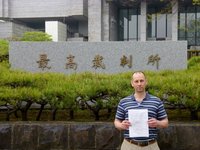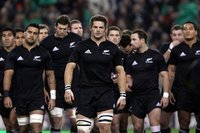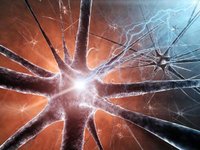Supreme Court of Japan Appeal
Notice
- This appeal was originally written by me personally in Japanese without any help from a lawyer whilst evacuating from Fukushima during the 3/11 disaster. Also it was a race against time to meet the submission deadline.
- Therefore, some content may not address the High Court verdict as efficiently as it could have, and there may be some unnatural usages of Japanese in places (in original Japanese version) but I think I did okay given the circumstances.
- Evidence articles with the prefix “Koh” are items submitted by the claimant.
- Evidence articles with the prefix “Otsu” are items submitted by the defendant doctor.
- Evidence articles with the prefix “Hei” are items submitted by the defendant hospital.
- “TN” = Translator’s notes
Heisei 23 (Year 2011) (NEO) No. 141 Appeal Case for Compensation Claim
Appellant: Wayne Michael Douglas
Appellees: S Clinic Representative Mr. I, XX
Supreme Court Appeal
May 9, 2011
The Supreme Court of Japan
Appellant: Wayne Mihael Douglas
I herby submit the appellant’s grounds for appeal pertaining to the case between the above parties.
NB: My native language is English and not Japanese, therefore, there may be some unnatural use of wording. Further, I have tried to keep the content as concise as possible, however, being a medical case, a slightly higher degree of explanation is required and so I would like to ask for your understanding with regards to this.
Top of Page
Notice
As I was representing myself during this appeal, in accordance with standard legal practice, I was required to refer to myself as the 3rd person using the wording “The Appellant”.
1: Points of Dispute
There are 5 points of dispute as follows:
- Whether or not the appellant was benzodiazepine dependant
- Whether or not Appellee XX (Doctor - referred to herein as Appellee X) committed an informed consent infringement
- Whether or not Appellee X committed a monitoring infringement
- Whether or not there is a cause and effect relationship between (2) & (3) above and the damages.
- The damages amount
The High Court judgment ruled out all of numbers (1) ~ (3), and did not rule upon (4) & (5). Subsequently, in this grounds for appeal, I hereby present valid reasons outlining why numbers (1) ~ (3) and (4) & (5) above should in fact be ruled in.
Top of Page
2: Grounds for Appeal
2.1: High Court Verdict Overview
The basis for High Court’s verdict included the following reasoning and stated that it was unable to support the appellant’s claim of benzodiazepine dependency.
(1)
The main body of submitted evidence supporting that the appellant was benzodiazepine dependant consists of the 5 reports provided by Dr. Judson, who diagnosed the appellant, and are recorded as follows: Koh A23 – 1~2 (Report 1), Koh A28 – 1~2 (Report 2), Koh A35 – 1~2 (Report 3), Koh A39 – 1~2 (Report 4), Not submitted (Report 5). Also, the 9 patient files contained in the official evidence upon which the above reports are based.
(2)
In accordance with the DSM-IV-TR diagnostic criteria, as long as 3 criteria are met a diagnosis for dependence can be determined (this is a non debatable fact). Although, Dr. Judson’s reports 1~4 say that the appellant met 5 criteria, there are still lingering doubts over their application.
(3)
There remains the question suggesting that the appellant could not have been dependent because he was experiencing autonomic nervous disorder.
(TN: “Autonomic Nervous Disorder” is a diagnostic term commonly used in Japan to describe: (A) Psychosomatic symptoms caused by a variety of stress / anxiety conditions, or (B) Any other condition where the Autonomic Nervous System acts in a way that produces symptoms, especially in cases where they are not sure of the cause).
Top of Page
2.2: High Court Injustices (A)
The High Court of Appeal’s ruling consisted of the following errors in judgment with regards to whether or not the appellant was benzodiazepine dependent.
2.2.1
DSM-IV-TR Application Misunderstood
2.2.2
Interpretation of DSM-IV-TR Application Incorrect
2.2.3
Five DSM-IV-TR Criteria Not Considered Within Context of Overall Clinical Picture
Top of Page
2.2: High Court Injustices (B)
2.2.4
Misunderstanding of (Diagnostic) Terminologies
2.2.5
Autonomic Nervous Disorder Claim Has No Basis
2.2.6
No Possibility of Pre-existing Neurological Disorder
Top of Page
2.2: High Court Injustices (C)
2.2.7
Duration & Dosages Sufficient to Form Dependency
2.2.8
High Court Did Not Consider Individuality
2.2.9
Translation Errors
Top of Page
2.3: Constitution Infringements Pursuant to Clause 32
2.3.1
Key / Expert Witness Dr. Judson (Specialist in Addictive Medicine) Denied Opportunity to Testify at both District and High Courts
2.3.2
Process Indicated by Initial High Court Judge Stopped Without Completion of Evidence / Differential Diagnosis
2.3.3
Left-hand Associate Judge (Mainly Presided Over This Case) Demonstrated Unprofessional Conduct
2.3.4
For the reasons above the high court verdict was not produced in accordance with fair proceedings resulting in an infringement of constitution clause 32.
Top of Page
2.4: Cause and Effect between Negligence and Damages
The High Court did not hand down a decision regarding the cause and effect relationship between negligence and damages, however, the below clearly show that negligence occurred.
(1)
Based on the aforementioned reasons, it is clear that the appellant was in fact benzodiazepine dependant.
(2)
Whether or not Appellee X committed an informed consent infringement
The following documents clearly show that an informed consent infringement occurred.
- (Appendix 8: Evidence article Koh A39 - Dr. Judson’s Report 4, Section 4)
- (Appendix 10: Grounds for Appeal Form against initial verdict, dated Oct 27th, 2009)
(3)
Whether or not Appellee X committed a monitoring infringement
The following documents clearly show that a monitoring infringement occurred.
- (Appendix 8: Evidence article Koh A39 - Dr. Judson’s Report 4, Section 4)
- (Appendix 10: Grounds for Appeal Form against initial verdict, dated Oct 27th, 2009)
NB: The verdict says because Dr. X was carrying out periodic testing that there could not have been a problem with monitoring, however, it must be clearly understood that this testing was for dizziness, and there was absolutely no testing carried out for drug dependency.
This was noted by Dr. Judson who said “Dr. X’s patient file contains no records of monitoring for potential drug dependency, which further supports the fact that the monitoring was insufficient and ultimately resulted in the formation of Benzodiazepine dependency in Wayne (Evidence article Otsu A1)”. (See Appendix 8: Evidence article Koh A39 - Dr. Judson’s Report 4, article 4.3 (Especially 4.3.12).
(4)
Whether or not there is a cause and effect relationship between (2) informed consent infringement & (3) monitoring infringement above and the damages
As above, the fact that there was no informed consent or adequate monitoring is vividly clear. Therefore, there is a clear cause and effect relationship between negligence on the part of Dr. X and the appellant’s dependency and subsequent losses.
(5)
The Damages Amount
With regards to the amount being sought for damages, the claim amount is as outlined in the High Court verdict. However, as the appellant is in a state of hardship, he cannot afford to employ the services of a representative lawyer any longer and he was barely able to afford the court fees even with assistance. Therefore, the claim amount is herby reduced to an even 20,000,000 yen (TN: The cost of court fees increases according to the claim amount).
Top of Page
2.5: In Closing (A)
In proving the fact that the appellant was benzodiazepine dependent the following procedures have been observed:
- Dr. Judson’s reports (especially 3~5) have all been based on the evidence (especially the 9 patient files contained in the official body of evidence) in accordance with the process indicated by the first High Court Chief Justice.
- Dr. Judson’s reports have all been prepared by an expert in addictive medicine
- Dr. Judson’s reports are all based on the DSM-IV-TR diagnostic criteria which is recognized worldwide.
- The application of the DSM-IV-TR criteria for tolerance and withdrawal (symptoms) contained in Dr. Judson’s reports have been verified by Professor Ashton who is the world leading expert on benzodiazepine dependency.
- Dr. Judson’s reports contain comments and references from Professor Ashton.
Subsequently, if the above is not sufficient enough to prove that the appellant was benzodiazepine dependent, then I fear that the people of Japan will remain at risk of suffering from the torturous experience that is benzodiazepine dependency for a long time to come. Some of these people may end up jumping in front of a train whilst commuting to work because they are lost and cannot see a way out.
The appellant was lucky because he was able to return to New Zealand where he was able to receive the appropriate diagnosis and appropriate care to get well again. Benzodiazepine dependency destroys lives, work and family relationships and takes a toll on society in general (See Benzodiazepines: How They Work and How to Withdraw. Prof. C. H. Ashton, Chapter 1), (See Evidence article Koh C26 - The appellant’s 3rd Statement, article 77 for Japanese translation).
Although, I feel that not allowing Dr. Judson’s witness /expert testimony was unfair, I do not believe that it was absolutely necessary because, as mentioned previously, each of the reports are based on the 9 patient files contained in the official body of evidence with detailed explanations relating to how each of the DSM-IV-TR criteria apply.
Therefore, it is fair to say that enough had been done already to prove that the appellant was in fact dependent regardless of whether or not a testimony took place. Further, the appellant’s dependency has been supported by the world’s leading expert.
Yes Appellee X is a famous doctor (international authority), but he specializes in the field of balance problems, and as Appellee X himself admitted during mediation, he knows absolutely nothing about benzodiazepine dependency.
So what we have in this case for benzodiazepine dependency is the opinions of one group which consists of people who know absolutely nothing about benzodiazepine dependency versus the opinions of another group which consists of a specialist in addiction medicine and the world leading expert in benzodiazepine dependency whose arguments have been based on the official evidence.
Yet for some reason, the group which knows absolutely nothing about benzodiazepine dependency has been judged as being the most credible. This is totally unrealistic.
How far does one have to go to make the court realize? In reality, even if the appellant did end up receiving some kind of compensation, he would have ended up earning it 3 times over by the time the case had ended, considering the amount of time he has had to spend on preparations.
Last year, the appellant had to spend over 1,000,000 yen on translations alone. The appellant is now 44 years old and he has absolutely nothing but debt which has recently been increased by the recall of the loan from legal aid. This is thanks to Appellee X and his drug regime - followed by the subsequent quest for compensation and recognition for his suffering.
Top of Page
2.5: In Closing (B)
The fact is Japan is well behind when it comes to understanding and dealing with the dangers of prescription benzodiazepines. This fact was shown in the recent NHK documentary called “The Increasing Problem of Prescription Drug Dependency” televised at 10pm on Saturday, August 28th, 2010.
Professor Ashton has also expressed her concern: “Japan apparently has a very high rate of benzodiazepine prescriptions and a high use of potent benzodiazepines such as Xanax, and the doctors prescribe too much and for too long” (Appendix 5-2F~H).
As long as the courts fail to serve in the interests of the public, and as long as doctors like Dr, X continue to get off without being held accountable, nothing is going to change and people will go on suffering from the living hell that is addiction. Can this be considered as acceptable?
Unfortunately, the only way people can understand is when it happens to them – this is the reality of it.
Following the events of the earthquake in North-Eastern Japan, the prescribing of benzodiazepines for trauma related ailments will likely increase. Unfortunately, for many of these people, if they are prescribed long term, it is likely they will have a second hell to come.
According to the report from the appellant’s former lawyer regarding the first scheduled court hearing date held on December 1st, 2009, the said lawyer reported “Dr. X is absolutely furious over the lodging for appeal”.
Taking into consideration how much the appellant has suffered and considering how much other people in Japan have/are/will suffer; does Appellee X really have the right to be angry? Do these people not matter?
I do appreciate that there must be room for some doubt in this case mainly due to the fact that benzodiazepine dependency often produces the same symptoms they are designed to treat “autonomic nervous disorder hyper-function of the autonomic nervous system)”.
I am not sure whether the legal concept “beyond reasonable doubt” applies in Japanese law, however, I believe that when all of the facts and evidence are considered as a whole, enough has been done already to prove “beyond reasonable doubt” that the appellant was indeed benzodiazepine dependent and that he suffered as a result. The bottom line is that the appellant was in truth dependent, and justice has not been served on this occasion.
The appellant does not wish for this case to be dragged out any further as he has already suffered as a result of drug dependency and subsequent ongoing litigation for well over 10 years. He does not wish to be a victim any longer.
We have now done everything possible to bring the dangers of benzodiazepine dependency to the attention of the powers that be. Therefore, it is no longer the appellant’s problem. It is now a problem for the defense’s conscience, and ultimately the public of Japan.
Subsequently, at this stage of proceedings, all the appellant wishes for is to have the court take another look over each of Dr. Judson’s reports and each of the appellant’s statements in the knowledge that dependency causes both anxiety/stress and “autonomic nervous disorder (hyper-function of the autonomic nervous system)”, as confirmed by Professor Ashton.
I hope that based on their respective contents the Supreme Court can make an investigation into whether the High Court ruling was fair or not. Following this, I hope that a fair and final decision can be reached.
Top of Page
Enclosed Documents
- Supreme Court Appeal Form x 8 copies
- Constitutional Grounds for Supreme Court Appeal Form x 8 copies
- Appendices x 8 sets of copies
(1.1) Letter from Dr. Judson (English original)
(1.2) Letter from Dr. Judson (Japanese translation)
(2.0) DSM-IV-TR application from Report 3 (Japanese Translation) Evidence Koh A35-2
(3.0) DSM-IV-TR application from Report 4 (Japanese Translation) Evidence Koh A39-2
(4.0) Diagnosis Form from Dr. M (TN: English)
(5.1) Expert Opinion from Professor Ashton (English original)
(5.2) Expert Opinion from Professor Ashton (Japanese translation)
(6.1) Professor Ashton’s Profile (English original)
(6.2) Professor Ashton’s Profile (Japanese translation)
(7.0) Differential diagnosis from Report 3 (Japanese Translation) Evidence Koh A35-2
(8.0) Informed Consent & Monitoring Issues from Report 4 (Japanese translation) Evidence Koh A39-2
(9.0) Dr. Judson’s Report 5 (Not yet submitted)
(10.) Grounds for Appeal Form against initial verdict, dated Oct 27th, 2009
Top of Page

The primary language of this website is English. Japanese appears as translations only (except for some original court documents).
These translations have been done by many different translators including me. Therefore, there are differences in quality and styles.
Please understand that I am not native Japanese and subsequently there are parts that may sound unnatural in Japanese.
“If any drug over time is going to just rob you of your identity [leading to] long, long term disaster, it has to be benzodiazepines.”

Dr John Marsden,
Institute of Psychiatry, London
November 1, 2007
“Benzos are responsible for more pain, unhappiness and damage than anything else in our society.”

Phil Woolas MP,
Deputy Leader of the House of Commons,
Oldham Chronicle, February 12, 2004
“The benzodiazepines are probably the most addictive drugs ever created and the vast army of enthusiastic doctors who prescribed these drugs by the tonne have created the world's largest drug addiction problem.”

The Drugs Myth, 1992
“If there's a pill, then pharmaceutical companies will find a disease for it.”

Jeremy Laurance,
The Independent, April 17, 2002.
“To rely on the drug companies for unbiased evaluations of their products makes about as much sense as relying on beer companies to teach us about alcoholism.”

Marcia Angell MD
(Former) Executive Editor New England Journal of Medicine
“It is more difficult to withdraw people from benzodiazepines than it is from heroin.”

Professor Malcolm H Lader
Institute of Psychiatry London
BBC Radio 4, Face The Facts
March 16, 1999
“Withdrawal symptoms can last months or years in 15% of long-term users. In some people, chronic use has resulted in long-term, possibly permanent disability.”

Professor C Heather Ashton
DM, FRCP,
Good Housekeeping, 2003
“Clearly, the aim of all involved in this sorry affair is the provision of justice for the victims of tranquillisers.”

Many people have asked me why I fought as far as the Supreme Court of Japan and why I decided to set up this website.

Regarding the former, I felt it was just simply wrong – people shouldn’t go to their doctor and come away suffering like that. I could see there was a significant problem in the current medical world that was affecting not only me but many others as well. I felt the problem needs to be brought to the attention of the authorities and there needs to be some accountability.
Regarding the later, knowing what prescription dependency is like, and being aware of the Effects on Us All, I felt the need to do something so that others aren’t led into suffering the same fate. This gave way to the idea of establishing this website.
Throughout this most grueling of challenges, I was always able to draw on inspiration from the All Blacks, and in particular captain Richie McCaw.

No matter how hard things got, or even when they were hard done by, they never complained and just got on with it.
AWESOME!
For many months and years I had to endure the effects and suffering of a horrible benzodiazepine dependency.

During my quest to seek recognition for this, I thought the defendant hospital, doctor and courts had a lot of nerve to turn around and tell me that I wasn’t dependent (despite having attended a drug rehabilitation program with follow-up consultations lasting more than a year)...

- Our key witness was twice denied the opportunity to testify – once by the Tokyo District Court and once by the Tokyo High Court.
- The Tokyo District Court judge raised an issue in the defense's favour only after proceedings had ended totally denying us any opportunity for rebuttal.
- The Tokyo High Court judge chose to use the package inserts from the drug companies to determine the amounts at which benzodiazepines could be deemed addictive, completely ignoring the extensive evidence (literature, expert opinions etc) submitted to the contrary.
- The courts made no issue over the prescribing doctor diagnosing me with one thing and treating me with drugs used for something completely different.
-
More than half the applied DSM-IV-TR diagnostic criteria for dependency were not addressed in the verdict.
- The presiding High Court judge was replaced half way through proceedings by a judge who knew absolutely nothing about the case or benzodiazepines before the verdict was delivered.

This section focuses on some of the apparent injustices of the Japanese courts in my case. To help highlight these, some parts of this section include cross-referencing between the High Court Verdict and the Dependency Reports which were all based on the official evidence and the DSM-IV-TR diagnostic criteria for dependency.







